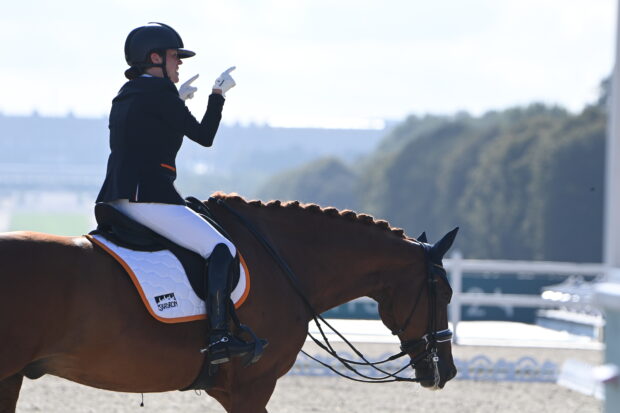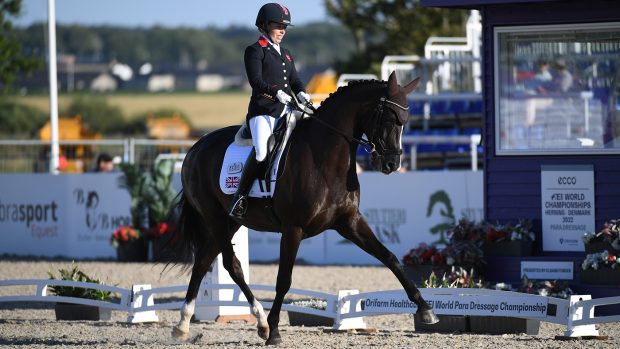Greenwich was where para dressage came of age. Never before had the sport seen sell-out stadiums or such huge media interest — driven by stellar performances by Team GBR.
It was “an important shift in the quality of the sport”, said FEI secretary general Ingmar Vos, addressing the governing body’s annual sport forum in Lausanne, Switzerland (8-9 April).
But, he continued, the rapid development of the sport meant changes to the format were needed.
These include a qualification element for the freestyle, with only the top third in the individual competition going through. This, said the FEI, was a reflection of how far the sport had come.
But another proposal — to reduce the number of riders from five to four per country — ostensibly to make the sport more accessible, drew an impassioned protest from British delegates.
Discriminating against success
FEI dressage and para dressage director Trond Asmyr said capping the number of riders at four was necessary to “open the sport to more countries”, who may not be able to field five athletes.
It would also, he said, bring para dressage “in line” with the three Olympic disciplines.
But Team GBR performance director Will Connell said the proposal was designed to “discriminate against successful athletes”.
At London 2012, Team GBR won 11 medals — the maximum number available — by fielding a team of four plus an individual rider, in each of the five grades of disability.
“These proposals are not justified,” said Mr Connell. “They stifle positive momentum, they do not move the standard of the sport upwards and they will place a restraining hand on the pursuit of excellence.”
He was backed up by Soenke Lauterbach, head of the German equestrian federation.
It is not right, said Mr Lauterbach, “if those rule changes are being made because one nation is being too successful”.
The FEI’s Trond Asmyr insisted that this was not the reason for the proposed change.
“There is a need to develop the qualification system so more countries can be represented,” he told H&H.
Victims of their own success
But David Hunter, para dressage performance manager, told H&H that the proposal was a “retrospective step”.
“It is an outrageous move and would deny a nation the opportunity to send a rider in each grade.
“There is an argument that we have become a victim of our own success,” he added.
At the FEI sport forum, Germany and Denmark — both countries that can field five riders — spoke out against the move. But Austria said it would benefit countries without a tradition of para dressage.
The proposals will be put before the FEI’s general assembly in November.
This news story was first published in Horse & Hound magazine (18 April 2013)



